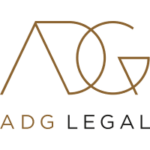-
What are the key financial crime offences applicable to companies and their directors and officers? (E.g. Fraud, money laundering, false accounting, tax evasion, market abuse, corruption, sanctions.) Please explain the governing laws or regulations.
Bribery and corruption: The Bribery Act 2010 (“BA”) criminalises offering or giving bribes (s 1), and requesting or accepting bribes (s 2). Commercial organisations that fail to prevent associated persons from committing bribery are also guilty of an offence, unless the organisation can show that it had adequate prevention procedures in place (s 7).
Tax Evasion: Tax evasion offences are found across various statutes, including the Taxes Management Act 1970, Value Added Tax Act 1994, Customs and Excise Management Act 1979, and Finance Act 2016. There is additionally a common law offence of cheating the public revenue. Under ss 45 and 46 of the Criminal Finances Act 2017 (“CFA”), corporates that fail to prevent associated persons from committing a UK or foreign tax evasion facilitation offence are also guilty of an offence, unless they had reasonable prevention procedures in place.
Fraud: The Fraud Act 2006 sets out the offences of fraud (ss 1-4), participating in fraudulent businesses carried on by a sole trader (s 9), and obtaining services dishonestly (s 11). The Theft Act 1968 also criminalises false accounting (s 17) and the making of false statements by company directors (s 19). In addition, s 199 of the recent Economic Crime and Corporate Transparency Act 2023 (“ECCTA”), which is expected to come into force by 2025, creates a new corporate offence under which large organisations can be held criminally liable for failing to prevent fraud by associated persons, unless they had reasonable prevention procedures in place.
Sanctions: The UK implements various sanctions regimes through regulations enacted under the Sanctions and Anti-Money Laundering Act 2018. These regulations, such as the Russia (Sanctions) (EU Exit) Regulations 2019, typically include prohibitions on dealing with resources controlled by designated persons, and making funds or financial services available to them.
Money laundering: Part 7 of the Proceeds of Crime Act 2002 (“POCA”) sets out a number of primary money laundering offences concerning the possession, concealment, conversion, transfer or making of arrangements relating to the proceeds of crime (ss 327-329). Regulated firms are also under an obligation to report suspicions of money laundering to the National Crime Agency (“NCA”) by filing a Suspicious Activity Report (“SAR”), and failing to make the necessary disclosures is an offence (ss 330-331). Where a person suspects that property they intend to deal with is derived from crime, they can avoid a money laundering offence by submitting an authorised disclosure to the NCA and obtaining consent to proceed with the transaction – this is known as a defence against money laundering (“DAML”).
In addition, the Money Laundering, Terrorist Financing and Transfer of Funds (Information on the Payer) Regulations 2017 (“MLRs”) place various obligations on businesses in the UK to implement measures to prevent money laundering and breaches of financial sanctions. Contravention of the MLRs is a strict liability offence and businesses face an unlimited fine on conviction.
Market abuse: Insider dealing is an offence under Part V of the Criminal Justice Act 1993, and market manipulation is an offence under ss 89-91 of the Financial Services Act 2012. The Market Abuse Regulation (EU Regulation No 596/2014) (“MAR”) also sets out various rules in relation to market abuse, and breaches of the MAR can attract significant administrative fines.
-
Can corporates be held criminally liable? If yes, how is this determined/attributed?
Corporates can be held criminally liable for failing to prevent associated persons from committing bribery (s 7 BA) or tax evasion facilitation offences (ss 45 and 46 CFA), unless they had reasonable/adequate prevention procedures in place. The ECCTA also introduced a parallel corporate offence of failure to prevent fraud, which is expected to come into force by 2025.
Corporates can additionally be held criminally liable for the acts of their employees where these acts are attributed to them. Under s 196 of the ECCTA, if a senior manager of an organisation acting within the actual or apparent scope of their authority commits an economic crime offence listed in Schedule 12 of the ECCTA, the organisation is also guilty of the offence. For offences not listed in Schedule 12, the traditional identification doctrine applies, under which a company will be liable for acts committed by individuals who represent its “directing mind and will”. The upcoming Criminal Justice Bill 2023 proposes to replace the identification doctrine with the ‘senior manager’ test for all offences. At the time of writing, the Bill is at the Report stage and remains under consideration by Parliament.
Separately, corporates may also be vicariously liable for the acts and omissions committed by their employees and agents in the course of their employment, particularly where liability is strict.
-
What are the commonly prosecuted offences personally applicable to company directors and officers?
Company directors and officers have been personally prosecuted for most of the offences referred to in Q1, most commonly for fraud and bribery. For example, in January 2024, the Serious Fraud Office (“SFO”) charged two former company directors with fraud in relation to an £88m car lease scheme operated by Buy2Let Cars Ltd. The SFO also charged two former Petrofac senior executives in February 2024 for offering and paying over US$30 million in bribes to influence the award of oil facility contracts worth approximately US$3.3 billion.
-
Who are the lead prosecuting authorities which investigate and prosecute financial crime and what are their responsibilities?
The two key prosecuting authorities in the UK are the Crown Prosecution Service (“CPS”) and the SFO. The CPS is the primary public prosecuting agency and has the authority to bring charges and prosecute cases based on evidence provided by the police and other regulatory bodies. The SFO is a specialist prosecuting authority responsible for investigating and prosecuting serious or complex fraud, bribery and corruption. The Director of the SFO decides which cases to take on based on the harm caused by the suspected offence, and whether the complexity and nature of the offence warrant the application of the SFO’s specialist skills, powers, and capabilities.
The NCA investigates serious and organised crime, including cybercrime and money laundering syndicates. The NCA also handles SARs and coordinates efforts between various government agencies and the private sector to strengthen the UK’s response to economic crime. The NCA’s criminal cases are prosecuted by the CPS.
The Financial Conduct Authority (“FCA”) is the independent regulator of the financial services industry and is responsible for investigating financial misconduct, including market abuse and insider trading, across the industry. The FCA has powers under ss 401 and 402 of the Financial Services and Markets Act 2000 (“FSMA”) to prosecute a range of criminal offences, and may refer complex cases to the CPS or SFO.
The Competition and Markets Authority (“CMA”) investigates potential breaches of UK competition law, such as anti-competitive agreements, abuse of dominant positions, and cartel offences. The CMA has the power to prosecute certain offences under various statutes and closely collaborates with the CPS and SFO for effective prosecution.
HM Revenue and Customs (“HMRC”) is responsible for investigating tax-related offences. While HMRC often prefers to use civil procedures to recover taxes and penalties, it can and does conduct criminal investigations in more serious cases. HMRC is not responsible for prosecutions – the CPS handles charging decisions and any consequent prosecution.
The Office of Financial Sanctions Implementation (“OFSI”) monitors compliance with financial sanctions and investigates suspected breaches. OFSI can issue warnings, refer regulated professionals to their respective bodies, publish breach information, or impose monetary penalties. OFSI may also refer serious breaches to other prosecuting authorities for criminal investigation and potential prosecution.
-
Which courts hear cases of financial crime? Are they determined by tribunals, judges or juries?
Most financial crimes are classified as ‘either-way’ offences, meaning they can be tried in either a magistrates’ court or the Crown Court, depending on the severity and specifics of the offence.
The vast majority of criminal cases are heard in a magistrates’ court by either a District Judge or a panel of three magistrates. The maximum sentence that a magistrates’ court can pass is 6 months’ imprisonment (or up to 12 months in total for more than one offence). A magistrates’ court can refer cases to the Crown Court if it deems its sentencing powers insufficient.
More serious criminal cases are usually heard in the Crown Court by a Circuit Judge or Recorder sitting with a jury. In the most serious cases, a High Court Judge may preside. In jury cases, the judge ensures that the trial is conducted fairly and explains the relevant law to the jury, who decide whether the defendant is guilty. The Crown Court can impose sentences up to life imprisonment. Defendants have the right to request that they be tried in the Crown Court for either-way offences.
-
How do the authorities initiate an investigation? (E.g. Are raids common, are there compulsory document production or evidence taking powers?)
The UK authorities have extensive investigative powers under POCA and the Police and Criminal Evidence Act 1984 (“PACE”) to conduct searches and seizures, compel document production, and require individuals to attend interviews and answer questions. In exceptional cases involving national security, authorities may conduct covert surveillance under the Regulation of Investigatory Powers Act 2000 (“RIPA”) or intercept communications under the Investigatory Powers Act 2016. Different enforcement agencies utilise these powers either alone or in combination with their specific statutory powers to gather evidence in an investigation.
NCA: The NCA often initiates investigations based on intelligence received from various sources, including SARs received from regulated entities. The NCA reportedly received 859,905 SARs in 2022/23. The NCA frequently uses dawn raids to disrupt organised crime, particularly money laundering operations.
SFO: The SFO primarily uses its powers of investigation under s 2 of the Criminal Justice Act 1987 (“CJA”) to search properties and compel individuals to answer questions and produce documents. Following the recent legislative changes under the ECCTA, the SFO can now use its s 2 CJA powers to gather evidence prior to opening a formal investigation in all of its cases (previously this was limited to only cases of international bribery and corruption). Dawn raids are a common tool used by the SFO, especially under the leadership of current Director Nick Ephgrave, who succeeded Lisa Osofsky in September 2023.
FCA: The FCA typically initiates investigations by issuing notices for information and documents to regulated entities, using its investigative powers under Part XI of the FSMA. It also regularly conducts dawn raids in market abuse or insider trading cases.
HMRC: HMRC initiates investigations based on various triggers such as discrepancies in tax returns, non-compliance reports, or suspicious activities identified through audits. HMRC commonly applies for production orders under POCA or PACE to obtain documents and information from banks and other third parties. In 2022/23, HMRC conducted 623 raids, a 40% increase from the year before.
CMA: The CMA initiates investigations based on market surveillance data, consumer complaints, or referrals from other regulatory bodies. The CMA frequently exercises its powers under the Competition Act 1998 (“CA”) to issue formal demands for information and carry out inspections, including dawn raids, at business premises to gather evidence on anti-competitive practices.
OSFI: OFSI is primarily a regulatory and administrative body rather than a direct enforcement agency. It does not have direct investigative powers and generally relies on the assistance of other enforcement agencies with investigative powers to gather intelligence and enforce sanctions.
-
What powers do the authorities have to conduct interviews?
UK authorities have extensive powers to conduct interviews with witnesses and suspects during investigations.
Witnesses: Witness interviews can be voluntary or compulsory, though most are voluntary. Statements given in voluntary interviews, including any admissions, can be used as evidence in subsequent legal proceedings. The authorities also have various statutory powers to compel witnesses to attend interviews and answer questions (e.g. s 357 POCA, s 2 CJA, s 165 FSMA, s 26A CA). Generally, answers given in compulsory interviews cannot be used against the interviewee in subsequent criminal proceedings, except in cases involving false statements.
Suspects: The power to conduct interviews with suspects is governed by PACE. Such interviews must adhere to the protections outlined in Codes of Practice C and E under PACE. In particular, persons who are suspected of an offence must be issued a caution before any questions about an offence are put to them. Failure to administer a caution will result in the suspect’s answers or silence being inadmissible in any subsequent prosecution. Interviews under caution can be conducted either voluntarily or following an arrest.
In general, individuals cannot be compelled to answer questions or provide information that is protected by legal professional privilege, with limited exceptions (discussed in Q11).
-
What rights do interviewees have regarding the interview process? (E.g. Is there a right to be represented by a lawyer at an interview? Is there an absolute or qualified right to silence? Is there a right to pre-interview disclosure? Are interviews recorded or transcribed?)
Witnesses: Witnesses in compulsory interviews do not have an absolute right to a lawyer. However, in SFO interviews under s 2 of the CJA, the SFO will allow a lawyer to attend if their presence is likely to assist the purpose of the interview or provide essential legal assistance or pastoral support to the interviewee. There is no right to pre-interview disclosure, although the SFO does typically provide it to facilitate the purpose of the interview. SFO interviews under s 2 of the CJA are usually audio recorded too.
Suspects: PACE Code C requires interviewers to administer a caution at the start of the interview, informing the suspect of their right to remain silent (though silence may result in an adverse inference) and that any answers given may be used against them in future criminal proceedings. The interviewer must also inform the suspect that they have the right to consult privately with a solicitor at any time, with free independent legal advice available.
Code C also mandates that suspects or their solicitors be given sufficient information before the interview to enable them to understand the nature of the offence under investigation and why they are suspected.
PACE Code E requires the whole of each interview to be audio recorded, including the taking and reading back of any statement. The suspect should be informed about the recording process at the start of the interview. Suspects will be given access to the recording if they are charged with an offence, or as otherwise agreed with the police or by court order.
-
Do some or all the laws or regulations governing financial crime have extraterritorial effect so as to catch conduct of nationals or companies operating overseas?
Money laundering: The primary money laundering offences set out in Part 7 of POCA have extraterritorial reach and can be prosecuted in the UK if there is a sufficient UK nexus. This nexus is present if the overall criminality occurred in the UK and its harmful consequences were felt there, even if the unlawful acts took place elsewhere.
Bribery: The bribery offences under the BA apply equally to UK companies and nationals who commit bribery abroad, as well as to foreign entities conducting business within the UK. Under s 7 of the BA, foreign corporates carrying on business in the UK can also be held liable for failing to prevent bribery by a UK national, even if the bribery occurs outside the UK.
Tax evasion: The corporate offences of failing to prevent the facilitation of tax evasion under the CFA are also extraterritorial. Foreign corporates conducting business in the UK can be held liable for failing to prevent associated persons from facilitating tax evasion, whether in the UK or overseas. For foreign tax offences under s 46 CFA, prosecutors must prove that the underlying conduct constitutes an offence in both the foreign country and under UK law (i.e. dual criminality), and that the associated person facilitated the tax evasion offence fraudulently.
-
Do the authorities commonly cooperate with foreign authorities? If so, under what arrangements?
UK authorities frequently cooperate with foreign counterparts through various formal and informal arrangements.
Mutual Legal Assistance Treaties (“MLATs”): A primary mechanism for international cooperation is MLATs. The UK has MLATs with numerous countries, including the United States, Canada, Australia, and various European countries. These treaties provide a framework for requesting and providing assistance in evidence gathering, obtaining witness statements, and executing search warrants across borders.
Memoranda of Understanding (“MoUs”): UK authorities often enter into MoUs with foreign counterparts to formalise cooperation on issues such as anti-money laundering (“AML”) and counter-terrorism financing (“CTF”). These MoUs outline cooperation terms, including information exchange protocols and joint training initiatives. For instance, the SFO has MoUs with prosecuting agencies in Brazil, Lithuania, and Korea to promote information exchange for preventing and detecting serious fraud, bribery and corruption. Similarly, the FCA has an MoU with Germany’s financial regulatory authority, BaFin, to formalise supervisory cooperation and information sharing arrangements to enhance AML/CTF supervision.
Bilateral agreements: Since 3 October 2022, the UK has had a bilateral data-sharing agreement with the US, under which enforcement authorities in either country can request data held by telecommunications providers based in the other country.
Joint Investigations Teams (“JITs”): The UK also participates in JITs with other countries in complex cross-border investigations. JITs allow for coordinated investigative efforts and resource sharing without having to go through the formal mutual legal assistance channels.
Interpol and Europol: The UK is also an active participant in international policing organisations such as Interpol and Europol, which facilitate intelligence sharing and coordination of operations across participating states.
-
What are the rules regarding legal professional privilege? What, if any, material is protected from production or seizure by financial crime authorities?
Legal professional privilege in the UK encompasses two main types – legal advice privilege and litigation privilege.
Legal advice privilege safeguards confidential communications between a lawyer and their client for the dominant purpose of giving or receiving legal advice. For corporate clients, this privilege applies only to communications with individuals authorised to give instructions and receive advice on the matter, and may not extend to all employees.
Litigation privilege covers confidential communications between the client or lawyer and third parties, or documents created on behalf of the client or lawyer, which were made for the dominant purpose of existing or reasonably contemplated litigation. This litigation must be adversarial in nature, and can include criminal prosecution.
Under the crime-fraud exception, communications intended to further a crime or fraud, or which are themselves part of a crime/fraud, are not protected by privilege. This exception applies to both types of privilege, and regardless of whether the lawyer is aware of the client’s criminal intent.
Authorities generally cannot compel the production of privileged documents, with very limited statutory exceptions. A notable exception is Part II of the RIPA, which permits covert surveillance of communications between lawyers and their clients if deemed necessary for national security or preventing crime.
-
What rights do companies and individuals have in relation to privacy or data protection in the context of a financial crime investigation?
Data protection: Part 3 of the Data Protection Act 2018 governs the processing of personal data by UK authorities for law enforcement purposes, including the prevention, investigation, detection or prosecution of criminal offences, and the execution of criminal penalties. Under Part 3, individuals have the right to be informed about the collection and use of their personal data (s 44), access their personal data (s 45), have incorrect data rectified (s 46), have data erased or restrict processing (s 47), and not to be subjected to automated decision-making (s 49).
That said, these rights can be limited during a financial crime investigation to the extent necessary to avoid prejudicing the prevention, detection, investigation or prosecution of criminal offences or the execution of criminal penalties.
Privacy: The RIPA allows for the use of investigatory powers to interfere with the right to privacy in certain circumstances. In particular, authorities may intercept communications under a warrant when necessary for preventing or detecting serious crime, or for national security reasons.
-
Is there a doctrine of successor criminal liability? For instance in mergers and acquisitions?
The UK does not have a formal doctrine of successor criminal liability. However, acquiring companies can still face liability in relation to historical criminal conduct in the target company. For example, if proceeds from illegal activity prior to the acquisition remains within the company post-acquisition, the acquirer could be exposed to a money laundering offence under POCA if it knowingly uses or possesses these proceeds without obtaining a DAML.
Additionally, the acquirer may be liable for ongoing illegal conduct after the acquisition if its new management fails to stop or address the misconduct. As discussed above, parent companies can face strict liability for failing to prevent bribery or tax evasion facilitation (and soon, fraud) by their subsidiaries, even if the parent company was unaware of the wrongdoing. This effectively requires acquiring companies to rectify inherited bad practices to avoid ongoing liability.
-
What factors must prosecuting authorities consider when deciding whether to charge?
Prosecuting authorities follow the two-stage test in the Code for Crown Prosecutors when deciding whether to charge a suspect.
The first stage is an evidential test, which requires prosecutors to determine whether there is sufficient evidence to provide a “realistic prospect of conviction”. Prosecutors must assess the quality and admissibility of the available evidence to ensure that any case brought forward is supported by credible grounds.
The second stage is the public interest test, where prosecutors consider the public interest factors for and against prosecution. Factors supporting prosecution include the seriousness of the offence, the harm caused, and the need for deterrence. Factors against prosecution may include the defendant’s personal circumstances and the availability of other remedies.
For corporate offenders and for offences under the BA, prosecutors must additionally consider the relevant joint guidance issued by the SFO and CPS.
-
What is the evidential standard required to secure conviction?
The prosecuting authority must prove that the defendant is guilty of the alleged offence beyond a reasonable doubt.
-
Is there a statute of limitations for criminal matters? If so, are there any exceptions?
There is no limitation period for prosecuting criminal offences in the UK, except for summary-only offences, which are less serious offences that are exclusively triable in the magistrates’ court. Section 127(1) of the Magistrates’ Courts Act 1980 states that a magistrates’ court cannot hear a case unless the charge is brought within 6 months of the offence date.
-
Are there any mechanisms commonly used to resolve financial crime issues falling short of a prosecution? (E.g. Deferred prosecution agreements, non-prosecution agreements, civil recovery orders, etc.) If yes, what factors are relevant and what approvals are required by the court?
Yes, several mechanisms can resolve financial crime issues without prosecution.
Deferred Prosecution Agreements (“DPAs”): DPAs are court-approved agreements between a corporate offender and a prosecutor (SFO or CPS), where prosecution is deferred in exchange for the corporation agreeing to specific conditions. These may include ongoing cooperation, remedial actions, or appointing an independent monitor. If the corporation complies, the matter can be concluded without further action. DPAs must be approved by a Crown Court judge, who must be satisfied that the DPA is in the interests of justice and that its terms are fair, reasonable and proportionate. While DPAs have primarily been used by the SFO so far, the High Court approved the CPS’s first DPA on 5 December 2023, in respect of Entain plc’s alleged failure to prevent bribery.
Civil Recovery Orders (“CROs”): CROs are also available under POCA, and enable authorities such as the CPS, SFO, NCA, FCA and HMRC to recover assets believed to be criminal proceeds through civil proceedings. These civil recovery proceedings target the assets rather than the offender, making CROs a particularly valuable tool when illicit proceeds are identified but securing a conviction is challenging.
Contractual Disclosure Facility: In tax fraud cases, HMRC may offer defendants a Contractual Disclosure Facility. This allows individuals to avoid criminal prosecution by admitting dishonest conduct, repaying owed taxes, and paying additional financial penalties and interest.
Administrative penalties: Regulatory agencies such as the FCA, OFSI, and CMA can also impose civil fines and other penalties on firms found in breach of the relevant rules, instead of referring the matter for prosecution.
-
Is there a mechanism for plea bargaining?
Yes, the Attorney General’s Guidance on Plea Discussions dated 29 November 2012 outlines the framework for plea discussions in cases of serious or complex fraud. The process allows defendants to negotiate with prosecutors to reach an agreement on charges in exchange for a guilty plea. Once an agreement is reached, parties can also discuss the appropriate sentence and present a joint written submission to the court. The prosecutor must however make clear to the defence that this joint submission is not binding on the court, as sentencing remains within the sole remit of the court.
-
Is there any obligation to disclose discovered misconduct to prosecuting authorities, or any benefit to making a voluntary disclosure? Is there an established route or official guidance for making such disclosures?
Under POCA and the Terrorism Act 2000, persons in the regulated sector must report knowledge or suspicion of money laundering or terrorist financing. Failure to report may result in criminal liability. Reports are submitted via SARs to the NCA, with detailed guidance available on the NCA’s website. Generally, reporting obligations do not apply to information protected by legal professional privilege.
Firms required to comply with UK sanctions must inform OFSI as soon as practicable if they know or reasonably suspect a person is designated or has committed offences under UK sanctions regulations. Reports should be emailed to OFSI. Failure to report is an offence and may lead to criminal prosecution or monetary penalties.
Financial services firms regulated by the FCA must disclose to the FCA “anything relating to the firm of which the FCA would reasonably expect notice”. They must also notify the FCA immediately if they become aware of issues with serious regulatory impact. Reports can be made through the FCA’s online reporting system.
Separately, voluntary disclosure offers significant benefits. It is seen as a sign of cooperation and commitment to compliance, often resulting in leniency in charging decisions and/or sentencing. The Code for Crown Prosecutors recognises self-reporting as a public interest factor against prosecution, and the SFO considers voluntary disclosure in determining whether to offer a DPA. The Sentencing Council’s guidelines similarly identify self-reporting as a mitigating factor in sentencing individual and corporate offenders for fraud, bribery and money laundering. The SFO’s guidance on corporate self-reporting outlines the process for companies to self-report misconduct.
-
What rules or guidelines determine sentencing? Are there any leniency or discount policies? If so, how are these applied?
Sentencing is primarily governed by the Sentencing Act 2020 (“SA”). Under s 59 of the SA, courts must follow the guidelines published by the Sentencing Council unless it would be contrary to the interests of justice. The Sentencing Council has published both general and offence-specific guidelines, including separate guidelines for the sentencing of individual and corporate offenders for fraud, bribery, and money laundering offences.
Mitigating factors such as cooperation with investigations, early admissions of guilt, and voluntary reporting of offences can lead to a reduced sentence. Additionally, ss 73 and 74 of the SA allow for sentencing discounts where the defendant pleads guilty and/or provides assistance to the prosecution. According to the Sentencing Council’s guidelines, the maximum sentence reduction for a guilty plea is one-third, typically awarded where a guilty plea is indicated at the first stage of proceedings.
-
In relation to corporate liability, how are compliance procedures evaluated by the financial crime authorities and how can businesses best protect themselves?
Prosecuting authorities evaluate compliance procedures based on the following six guiding principles:
- Proportionate procedures: Compliance measures should be proportionate to the financial crime risks faced and to the nature, scale and complexity of the organisation’s activities. They should also be clear, practical, accessible, effectively implemented and enforced.
- Top-level commitment: Senior management, such as the board of directors or owners, must be committed to preventing economic crime and fostering a culture where such behaviour is unacceptable.
- Risk assessment: Businesses should assess the nature and extent of their exposure to potential risks of offending behaviour, both internal and external. The assessment should be periodic, informed and documented.
- Due diligence: Businesses should apply due diligence procedures, taking a proportionate and risk-based approach, in respect of persons performing services on its behalf, in order to mitigate identified risks.
- Communication and training: Businesses should ensure that their economic crime prevention policies and procedures are embedded and understood throughout the organisation through internal and external communication, including training, that is proportionate to the risks faced.
- Monitoring and review: Businesses should monitor and review procedures designed to prevent economic crime and make improvements where necessary.
-
What penalties do the courts typically impose on individuals and corporates in relation to the key offences listed at Q1?
Fraud: Fraud is punishable with up to 10 years’ imprisonment and/or a fine. Severe cases involving large sums of money and sophisticated methods often result in sentences of 4 to 7 years’ imprisonment for individuals. The average custodial sentence for fraud increased from 19.7 months in 2022 to 22.4 months in 2023. Corporates often face substantial fines, determined in accordance with the relevant Sentencing Council guidelines.
Money laundering: Money laundering carries a maximum penalty of 14 years’ imprisonment and/or a fine. The average custodial sentence for money laundering offences rose from 20.5 months to 27 months between 2008 and 2018. Breaches of the MLRs can also result in hefty fines. In 2021, NatWest was fined £264.8 million after pleading guilty to three charges of failing to adequately monitor suspicious activity by its customer.
Bribery and corruption: Bribery is punishable with up to 10 years’ imprisonment and/or a fine. In June 2022, Glencore Energy UK Ltd was ordered to pay a total of £280 million after pleading guilty to seven charges under the BA. This financial penalty was the highest ever ordered in a corporate criminal conviction, and included a £182.9 million fine, a £93.5 million confiscation order, and the prosecution’s costs.
Sanctions: Breaching financial sanctions is punishable with up to 7 years’ imprisonment and/or a fine. The statutory maximum monetary penalty is the greater of £1 million or 50% of the breach value. In August 2023, an unnamed UK company was fined £1 million by HMRC in relation to the unlicensed trade of goods in breach of The Russian (Sanctions) (EU Exit) Regulations 2019.
Tax Evasion: Tax evasion carries a maximum sentence of 14 years’ imprisonment and/or a fine. Penalties for deliberate tax defaults vary, with the highest fine in HMRC’s list of defaulters on 9 July 2024 reaching nearly £3.8 million.
Market abuse: Insider dealing and market manipulation are punishable with up to 10 years’ imprisonment and/or a fine. The FCA can also impose administrative fines, order injunctions, and impose various restrictions on regulated persons for breaches of the MAR. In August 2022, the FCA fined Citigroup Global Markets Limited £12,553,800 (after a 30% discount) for failing to properly implement MAR trade surveillance requirements for detecting market abuse.
-
What rights of appeal are there?
In general, a defendant convicted after a full trial can appeal against their conviction, sentence, or both. After a guilty plea, appeals are generally limited to sentence only.
Defendants convicted in a magistrates’ court can appeal to the Crown Court within 21 days of the contested decision. This appeal involves a rehearing before a Crown Court judge and two magistrates, who can uphold, overturn or modify the original decision.
Defendants convicted in the Crown Court can appeal to the Court of Appeal (Criminal Division) within 28 days. They must obtain leave to appeal from either the trial judge or the Court of Appeal. The Court of Appeal can quash a conviction, order a retrial, adjust a sentence, or dismiss the appeal.
Either party can also appeal to the High Court on the grounds that the magistrates’ court had erred in law or exceeded its jurisdiction, by way of the “case stated” procedure. This must be done within 21 days of the decision. The High Court can affirm, reverse, amend the decision, or remit the matter back to the magistrates’ court with directions.
In exceptional cases involving points of law of general public importance, an appeal can be made to the Supreme Court. Leave is required from either the Court of Appeal or the Supreme Court.
In addition to the standard appeal routes, either party may also seek judicial review in the High Court (Administrative Court) in respect of procedural errors, with leave required from a High Court judge. The application must be made promptly and within three months of the decision. The High Court can quash the decision or order other appropriate remedies.
The Criminal Cases Review Commission can refer cases back to the appeal courts if new evidence or arguments emerge after standard appeals are exhausted.
-
How active are the authorities in tackling financial crime?
UK enforcement agencies have shown increasing activity in tackling financial crime in recent years.
SFO: The SFO has taken steps to enhance its prosecution efforts since the appointment of Director Ephgrave in September 2023. While the SFO faced some criticism for preferring corporate resolutions over individual accountability under its previous leadership, the SFO is now focusing on more rigorous prosecutions, enhanced collaboration with other agencies, and improved investigation management. For instance, in June 2024, the SFO announced its intent to charge 11 individuals involved in the Glencore bribery case. It has also initiated five new fraud investigations between October 2023 and March 2024.
CPS: There has also been substantial enforcement activity by the CPS. Between April 2021 – March 2023, the CPS prosecuted over 13,480 defendants, where fraud and forgery were the principal offence categories. In April 2024, the CPS secured convictions against five individuals for benefits fraud and money laundering offences, stemming from a JIT with Bulgaria.
NCA: The NCA employs various strategies to disrupt criminal enterprises, such as unexplained wealth orders and account freezing orders under the CFA to recover illicit assets. Recent NCA investigations have led to various high-profile arrests and significant confiscation orders. In April 2024, the NCA arrested a senior staff member of a scam company in a coordinated action by authorities across 10 countries. In July 2024, the NCA also obtained a Recovery Order over funds totaling over £1 million from bank accounts allegedly used as part of an international money laundering network.
FCA: The FCA has also ramped up its efforts, opening 613 financial crime supervision cases in 2022/23, a 65% increase from the previous year. In February 2024, the FCA proposed a new enforcement approach which aims to strengthen deterrence and increase transparency by publicly announcing investigations at an early stage.
HMRC: HMRC’s policy is to prefer civil procedures wherever appropriate, reserving criminal investigation for serious cases where a strong deterrent message or criminal penalties are warranted.
OFSI: OFSI has also increased its enforcement activities, particularly in light of the increased sanctions against Russia. In 2022/23, OFSI recorded 473 suspected breaches of financial sanctions, up from 147 the previous year, and issued seven warning letters and two monetary penalties in the same period.
-
In the last 5 years, have you seen any trends or focus on particular types of offences, sectors and/or industries?
Domestic fraud: There has been increased enforcement in respect of domestic fraud under Director Ephgrave’s leadership, with the proportion of domestic fraud cases handled by the SFO having risen from 50% to 65%. While Ephgrave has said that he wants the agency to focus on delivering justice to UK citizens who have fallen victim to elaborate fraud and scams, he also emphasised that the SFO remains committed to tackling bribery and corruption, and that the case ratio could potentially shift based on new referrals.
Money laundering: UK authorities have also intensified their efforts against money laundering. The FCA has stepped up enforcement against firms with inadequate AML controls, imposing substantial fines on major banks such as NatWest for AML control failings. Other regulators, including the Solicitors Regulation Authority and the Gambling Commission, have also increased enforcement and fines for AML deficiencies.
Cryptoassets: The UK has bolstered its regulatory framework and enforcement in relation to financial crimes involving the use of cryptocurrency. In 2018, the police seized over £2 billion worth of bitcoin, leading to the prosecution of two individuals. Recent legislative changes under the ECCTA also allow authorities to seize, freeze, and recover cryptoassets linked to criminal activities.
Real estate sector: There has been a significant focus on the real estate sector, identified as a money laundering hotspot in the UK. The government established the Register of Overseas Entities in August 2022, requiring overseas entities owning UK property to declare their beneficial owners or managing officers.
-
Have there been any landmark or notable cases, investigations or developments in the past year?
In December 2023, a solicitor was sentenced to 9 months’ imprisonment, suspended for 18 months, for tipping off a client about an SFO investigation. This was the first prosecution of its kind, and highlights the SFO’s commitment to upholding the integrity of its investigations and deterring professional misconduct.
A number of other notable cases and developments are also discussed in the preceding sections. These include the legislative changes introduced by the ECCTA, the CPS’s first DPA with Entain plc, and the SFO’s announcement of five new fraud investigations since September 2023.
-
Are there any pending or proposed changes to the legal, regulatory and/or enforcement framework?
Attribution test: The Criminal Justice Bill 2023 proposes to expand the ‘senior manager’ test of attribution under s 196 of the ECCTA to cover all offences. The Bill remains under consideration at the time of writing.
Failure to prevent fraud: The new corporate offence under s 199 of the ECCTA is expected to come into force in late 2024 or 2025, pending the publication of guidance on reasonable prevention procedures.
Companies House reform: The ECCTA has introduced numerous legislative reforms to transform Companies House from a passive receptacle of information into a proactive gatekeeper. Some of the changes have come into effect since March 2024, with more to follow throughout 2024 and 2025.
FCA proposal to publicise early-stage investigations: In February 2024, the FCA published a proposal to publicly announce enforcement investigations at an early stage, including naming the subject of the investigation, if this is in the public interest. The FCA is currently reviewing feedback on this proposal.
-
Are there any gaps or areas for improvement in the financial crime legal framework?
Whistleblowing: While the UK did initially lead the way with respect to whistleblowing legislation, its framework has since fallen behind various other jurisdictions, notably the EU and the US. The main UK legislation, namely the Public Interest Disclosure Act 1998, is now 26 years old, and there have been calls for legislative review for some time. In early 2023, the government commenced a review of the whistleblowing regime, which was meant to conclude by the end of 2023. With the recent change in government however, it remains to be seen whether this review will continue.
Separately, the current SFO Director, Nick Ephgrave, has expressed his views on potential reforms. In particular, Ephgrave has been a strong proponent of the US approach of providing financial incentives for whistleblowers who report misconduct leading to criminal convictions.
Off-channel communications: The regulation of off-channel communications, such as messages sent on WhatsApp and other non-official channels, presents gaps in the UK financial crime legal framework. Current regulations do not adequately cover off-channel communications, resulting in blind spots where financial crimes can be discussed and coordinated without detection. While the FCA has issued warnings and guidelines on the use of off-channel communications, these are not legally binding, leading to varying degrees of compliance among institutions. Introducing specific legislation to mandate the retention and accessibility of off-channel messages would create a uniform standard across the financial industry and ensure that all communications are subject to regulatory scrutiny.
Enforcement has also been inconsistent and fragmented across sectors. While the FCA has issued information requests to global financial institutions regarding the use of instant messaging apps by staff in October 2022, these efforts have not led to significant investigations or enforcement action to date. Instead, the Prudential Regulation Authority and Ofgem have stepped up to impose fines on regulated firms for inadequate retention of WhatsApp messages.
Greenwashing: The framework for regulating greenwashing is also considered insufficient, with calls for more targeted legislation and proactive regulatory measures to address this area comprehensively. Currently, there is no specific legislation dedicated to greenwashing in the UK, and greenwashing claims are primarily dealt with under the Consumer Protection from Unfair Trading Regulations 2008 (“CPRs”). However, the enforcement mechanisms under the CPRs are seen as lacking robustness, resulting in limited deterrence against greenwashing.
The UK also does not have a dedicated regulatory body responsible for greenwashing investigations. While the CMA can investigate companies suspected of greenwashing, it generally relies on consumer complaints rather than proactive investigations, resulting in inconsistent enforcement.
United Kingdom: White Collar Crime
This country-specific Q&A provides an overview of White Collar Crime laws and regulations applicable in United Kingdom.
-
What are the key financial crime offences applicable to companies and their directors and officers? (E.g. Fraud, money laundering, false accounting, tax evasion, market abuse, corruption, sanctions.) Please explain the governing laws or regulations.
-
Can corporates be held criminally liable? If yes, how is this determined/attributed?
-
What are the commonly prosecuted offences personally applicable to company directors and officers?
-
Who are the lead prosecuting authorities which investigate and prosecute financial crime and what are their responsibilities?
-
Which courts hear cases of financial crime? Are they determined by tribunals, judges or juries?
-
How do the authorities initiate an investigation? (E.g. Are raids common, are there compulsory document production or evidence taking powers?)
-
What powers do the authorities have to conduct interviews?
-
What rights do interviewees have regarding the interview process? (E.g. Is there a right to be represented by a lawyer at an interview? Is there an absolute or qualified right to silence? Is there a right to pre-interview disclosure? Are interviews recorded or transcribed?)
-
Do some or all the laws or regulations governing financial crime have extraterritorial effect so as to catch conduct of nationals or companies operating overseas?
-
Do the authorities commonly cooperate with foreign authorities? If so, under what arrangements?
-
What are the rules regarding legal professional privilege? What, if any, material is protected from production or seizure by financial crime authorities?
-
What rights do companies and individuals have in relation to privacy or data protection in the context of a financial crime investigation?
-
Is there a doctrine of successor criminal liability? For instance in mergers and acquisitions?
-
What factors must prosecuting authorities consider when deciding whether to charge?
-
What is the evidential standard required to secure conviction?
-
Is there a statute of limitations for criminal matters? If so, are there any exceptions?
-
Are there any mechanisms commonly used to resolve financial crime issues falling short of a prosecution? (E.g. Deferred prosecution agreements, non-prosecution agreements, civil recovery orders, etc.) If yes, what factors are relevant and what approvals are required by the court?
-
Is there a mechanism for plea bargaining?
-
Is there any obligation to disclose discovered misconduct to prosecuting authorities, or any benefit to making a voluntary disclosure? Is there an established route or official guidance for making such disclosures?
-
What rules or guidelines determine sentencing? Are there any leniency or discount policies? If so, how are these applied?
-
In relation to corporate liability, how are compliance procedures evaluated by the financial crime authorities and how can businesses best protect themselves?
-
What penalties do the courts typically impose on individuals and corporates in relation to the key offences listed at Q1?
-
What rights of appeal are there?
-
How active are the authorities in tackling financial crime?
-
In the last 5 years, have you seen any trends or focus on particular types of offences, sectors and/or industries?
-
Have there been any landmark or notable cases, investigations or developments in the past year?
-
Are there any pending or proposed changes to the legal, regulatory and/or enforcement framework?
-
Are there any gaps or areas for improvement in the financial crime legal framework?














